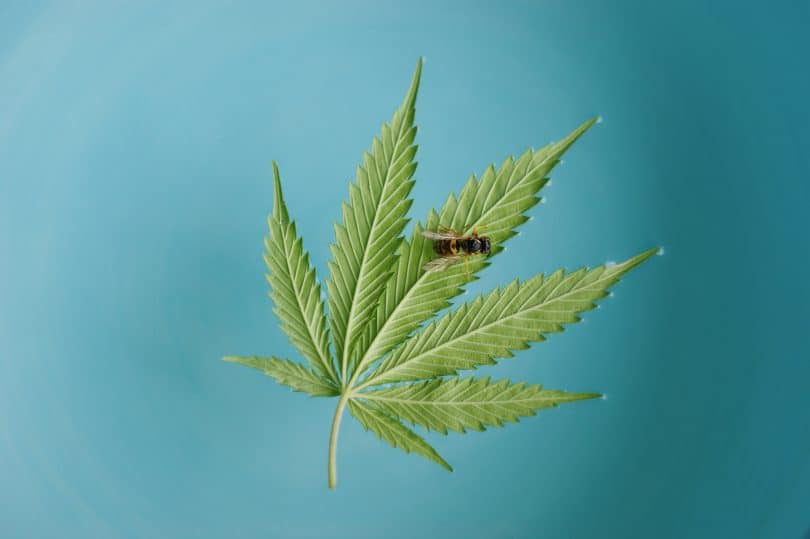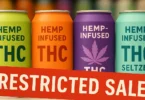There are tons of medical properties housed in the cannabis plant, and it doesn’t matter which kind. Whether its high-THC marijuana, or high-CBD hemp, (or even cannabis ruderalis), there’s a lot these plants can do. One of the newer findings is related to something that appeals to much of the population. A new study shows how hemp keeps honeybees alive for longer. Can it do the same for people?
Hemp has shown to elongate the life of honeybees by changing their antioxidant behavior. What might this mean for the animal kingdom at large, and for us humans? We’ll have to wait a bit longer for more specific answers. Welcome to our independent news publication centered on cannabis and psychedelics. Keep up with everything going on by subscribing to THC Weekly Newsletter, and get front-of-the-line access to deals on tons of cannabis products, including vapes, edibles, and other smoking equipment. You’ll also have access to a range of cannabinoid products including delta-8 THC. As a reminder, *cannabinoid compounds are not for everyone. We promote every consumer buy only the products they are happy with using.
The study setup
Researchers associated with the University of Life Sciences’ Department of Invertebrate Ecophysiology and Experimental Biology in Lublin, Poland, recently put out this study: Impressive Impact of Hemp Extract on Antioxidant System in Honey Bee (Apis mellifera) Organism. The aim of the study was to investigate what happens to the antioxidant system when hemp extract is given to honeybees.
As per the researchers, “We examined the effect of hemp extract on the activity of the antioxidant system (catalase, peroxidase, glutathione, superoxide dismutase, and total antioxidant capacity) in the hemolymph of adult honey bees (Apis mellifera).” In order to do this, the researchers took the bees, and split them into three groups. It should be noted, only worker bees were used (non-reproducing females):
- Experimental group – Given pure syrup (sugar) to eat, and with hemp-soaked cotton strips put in the cage
- Experimental group – Given a syrup with sugar and hemp extract via syringe
- Control group – Given a sugar and water-glycerine mix to eat
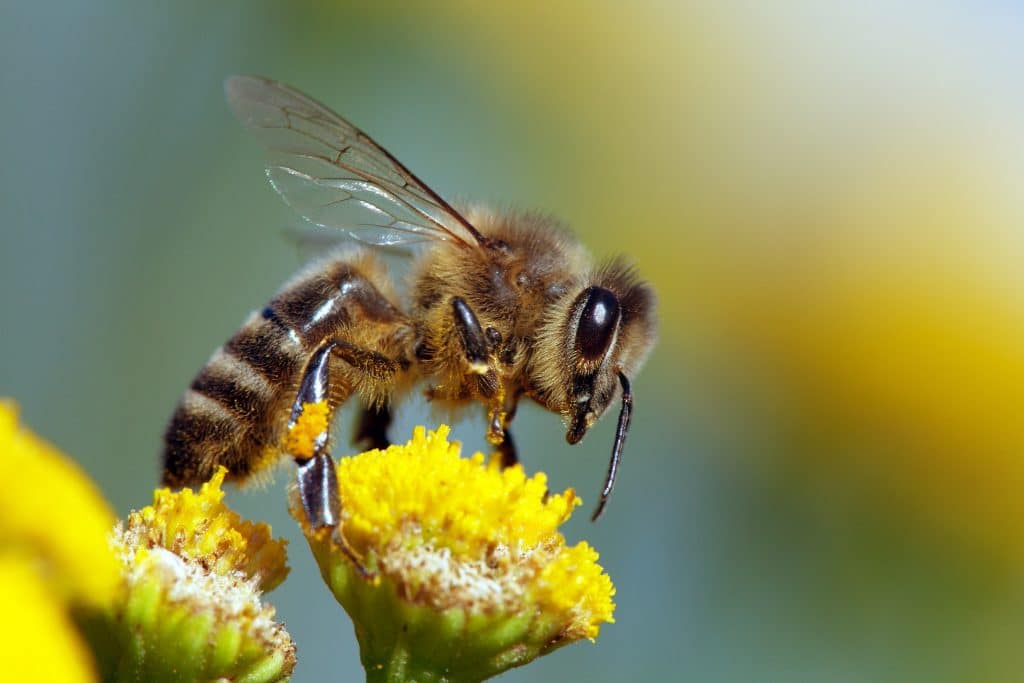
The scientists collected the bee hemolymph (essentially bee blood) on the first day of the study, and then weekly until all bees were dead. The dead bees were also examined along with their blood. The results are quite interesting when looking at the ability to simply stay alive longer.
Study results
One of the most interesting findings of how hemp effects honeybees, is related to lifespan. The control group, which ate only sugar, lived approximately 35 days. The group given sugar and hemp separately lasted about 49 days, and when hemp was given directly to the honeybees via syringe, they lived on average 52 days, with the longest lifespan at 56 days. To put this in perspective, the standard lifespan of a worker honeybee is 2-6 weeks in hotter weather, and around 20 weeks in cooler weather. For warmer weather, it means the bees almost never live longer than 42 days.
The thought by the researchers, is that this is because “Hemp extract, thanks to its antioxidant properties, increased the activities of key antioxidant enzymes that protect the bee’s organisms against free radicals and thus delay the aging processes.”
They further explained, “The activities of all antioxidant enzymes were higher for the experimental groups, compared to those for the control group. The highest antioxidant activities were noted in the group supplemented with cannabis with the use of syringes.”
Though the scientists could not say what specifically about the hemp extract caused these antioxidant changes in the honeybees, it was postulated that “The increase in the activities of antioxidant enzymes could be caused by the influence of CBD on the permeability of ion channels, i.e., potassium, sodium, and calcium, and therefore change in the cell membrane environment.”
Added onto these findings was data which supported the syringe method as the best way to get the hemp extract to affect the honeybees. This it pretty standard, as we already know that in humans as well, IV injections are usually more useful than other methods, particularly oral ingestion.
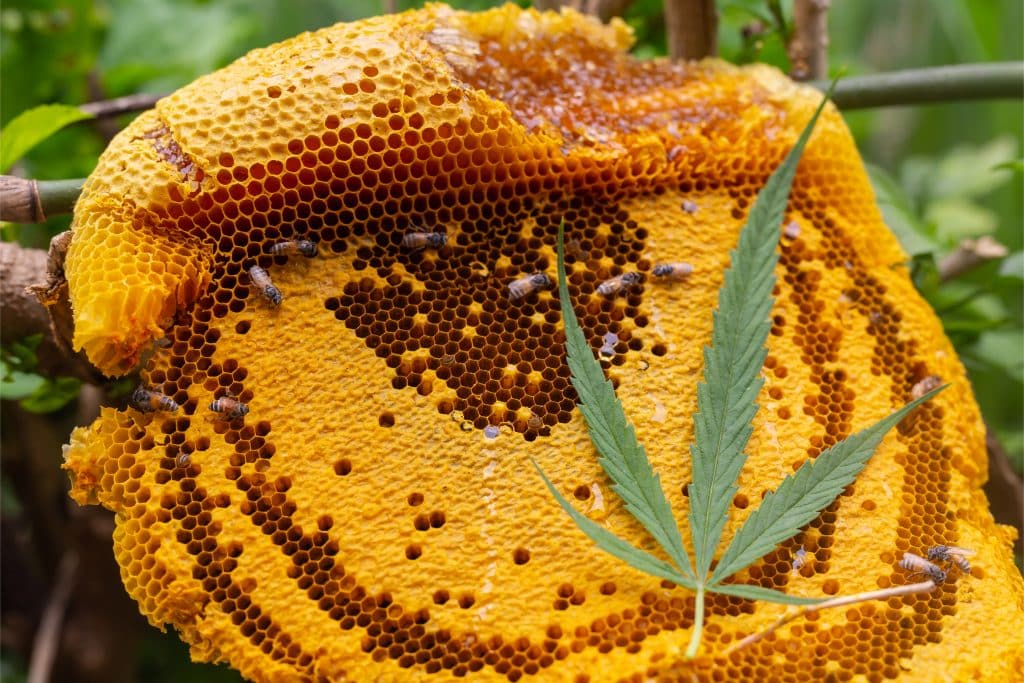
Though this study certainly brings up questions of whether hemp has the same life-extending ability in humans, the researchers were more concerned with other factors. They closed the paper by saying, “Thanks to this, we believe that hemp extract can in the future contribute to the improvement of the natural immunity of honey bees and help them with the fight against environmental pollution and the increase of oxidative stress.” Considering the recent issues and concerns around bee populations dying out, this could prove a positive way to keep the flying stingers, healthy and happy.
Where else can we see this?
The honeybee study sheds light on how hemp effects antioxidant enzymes in honeybees, leading to elongated lifespans. Obviously, we as humans are looking for exactly this, as evidenced by a cosmetics industry that brought in huge amounts for anti-aging products in the last few years. It was as high as $58.5 billion the world over in 2020, with an expected $62.65 billion for 2021, and predictions for over $67 billion in 2022.
Unfortunately, the same kind of study performed on the bees, has not been performed on people, so the best we have to show how hemp effects aging, is in animal studies. There are, however, more of those. Like this study from 2021 entitled Effect of Cannabidiol on the Long-Term Toxicity and Lifespan in the Preclinical Model Caenorhabditis elegans. For those unfamiliar with the lingo, Caenorhabditis elegans are roundworms. Beyond the fact that no worms died from exposure to CBD in correct dosages, it was found that CBD helped with resistance to heat stress, increased lifespan by 18%, and promoted a 206% increase in late-stage life activity.
Yet another example isn’t necessarily related to lifespan, but to the abilities of the brain as it ages, and how cannabis can affect this. Entitled A chronic low dose of Δ9-tetrahydrocannabinol (THC) restores cognitive function in old mice, this 2017 study shows how aging mice can regress their brains to as far back as a two-month-old’s, when given a low-dose treatment of delta-9 THC. The researchers “show that a low dose of Δ9-tetrahydrocannabinol (THC) reversed the age-related decline in cognitive performance of mice aged 12 and 18 months.”
The researchers explained that “This behavioral effect was accompanied by enhanced expression of synaptic marker proteins and increased hippocampal spine density.” And that “THC treatment restored hippocampal gene transcription patterns such that the expression profiles of THC-treated mice aged 12 months closely resembled those of THC-free animals aged 2 months.”
What about humans?
The reason there are no human studies about how cannabis might elongate life, is because there are some pretty heavy restrictions on how research must be done when it involves people. Add onto this that we’ve got much longer lifespans than honeybees, roundworms, or mice, and the sheer ability to conduct such a study on healthy humans, is non-existent. This is not true when dealing with studies involving patients with illnesses, but as such studies can’t show the effects on a healthy individual, they are not helpful here.
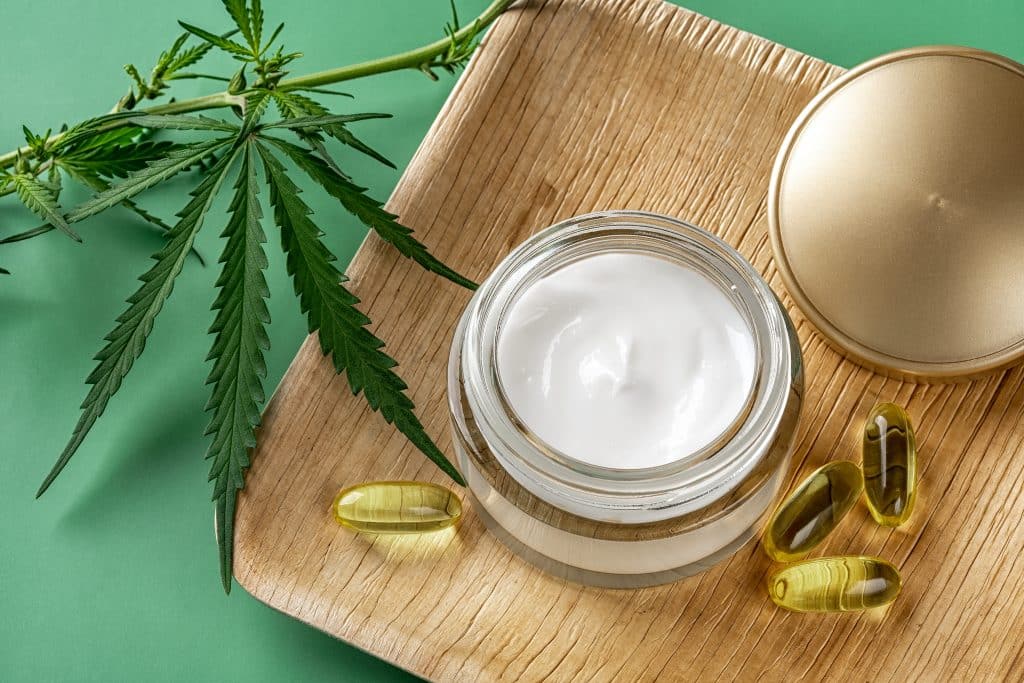
So, while there is plenty of evidence on the myriad of health benefits associated with cannabis, including how it can help with the aging process, we cannot say through research that it has the capacity to elongate a person’s life. However, this doesn’t mean we can’t do everything possible to treat ourselves right, and attempt lifestyles that are good for us, and keep us going strong. Part of this involves using things around that are good for us, even if they don’t necessarily add years on outside of keeping us healthy. Like honey.
An interesting aspect of honeybees is that they produce honey, and we eat it. The study above doesn’t go into whether the honey created by these bees might be any different than honey created by bees not fed hemp extract, or what that could mean. Unfortunately, very little research is out there on this subject, but it is an interesting concept. One of the only studies about this, was performed by allowing bees to eat from hemp plants, and though the bees produced cannabinoid positive propolis and pollen, it came with the detraction that cannabinoid levels were low, and that not much actual honey was produced.
This doesn’t mean that different and/or better conditions can’t produce different and/or better results. One of the things we already know about honey, is it’s incredibly healthy and beneficial for all kinds of problems. What if eating the byproduct of an animal that has undergone treatment by something like hemp, could pass on a positive attribute to the eater? Perhaps more improved cannabis honey will be a thing in the future, whereby we can access all the great benefits of honey, with all the great benefits of hemp as well. And perhaps we’ll find out that it helps us live longer.
Conclusion
Life-extending honey might not be on the menu yet, but maybe there’ll be an update soon. Either way, that hemp can have such benefits on honeybees, mice, and roundworms in terms of life elongation and brain regression, is certainly an interesting concept, and one that should be explored further for human and animal benefit.
Hello readers! Thanks for making it to CBDtesters.co, the #1 site for comprehensive and independent news covering the cannabis and psychedelics industries of today. Join us whenever possible to stay current on everything going on in this exciting and morphing landscape, and subscribe to The THC Weekly Newsletter, to ensure you’re always up on all the latest stories.

